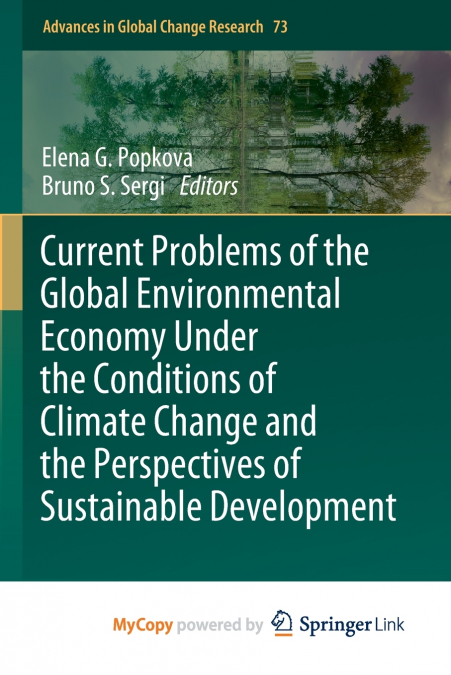
This book presents a systemic view of the global environmental economy under the conditions of climate change from the positions of Sustainable Development Goals. The purpose of the book is to study the current problems of the global environmental economy under the conditions of climate change and to determine the prospects of its sustainable development (systemic support for the SDGs). This goal predetermines the logic and structure of the book, which is comprised of five parts.Part I presents the authors’ novel view of the global environmental economy under the conditions of climate change from the positions of the SDGs. It reflects the contradiction and describes the path of preserving economic growth during the implementation of SDG 13. The COVID-19 pandemic and economic crisis are considered as the result of the reduction of biodiversity under the conditions of climate change from the positions of SDG 3. Responsible innovations, eco-friendly products, and green trade are presented as trends of the environmental economy under the conditions of climate change to support SDG 12. Green jobs are analyzed in the environmental economy under the conditions of climate change during the implementation of SDG 8. The significance of social inclusivity and reduction of the inequality of the environmental economy under the conditions of climate change to support SDG 10 is noted.Part II elaborates on the sectoral specifics of the influence of climate change on the environmental economy: energetics, finance, industry, state management, and agriculture. Part III presents and discusses the international experience of development of the environmental economy under the conditions of climate change given the specifics of developed and developing countries and based on the case experience of Central Asia, the EAEU, and Russia.In Part IV, technological transition (Fourth Industrial Revolution) is offered as a perspective response of the global economic policy to climate change. Scenarios of the fight against climate change in the Decade of Action depending on the scale of the technological transition are described: digital economy vs Industry 4.0 and Society 5.0. The perspectives of the technological transition at the level of companies (creation of cyber-physical systems of Industry 4.0; green digital innovations and smart ESG finance) and regions (smart region as a socio-economic environment with large adaptability to climate change) are described.